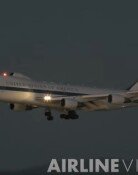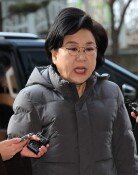[Editorial] Foreigners Say Wake Up From Northeast Asian Hub Dream
[Editorial] Foreigners Say Wake Up From Northeast Asian Hub Dream
Posted April. 07, 2005 23:39,
President Frans Hampsink of the European Union Chamber of Commerce in Korea (EUCCK) warned at a press conference on April 6 that unless all of Korea changes into a free-trade area, the northeast Asian hub project will stop short as an ad-hoc project. In a situation where it is difficult to run a business due to all kinds of regulations, and when the Korea-U.S. alliance is shaky, it is a stinging indication indeed. The government should not disregard his warning as merely distasteful, but use it as an opportunity to review the preconditions for the hub strategy.
Despite innumerable discussions about the governments regulations and resulting poor investment environment, little has improved. For example, the construction of the second Yeollyuk Bridge (Songdo-Incheon International Airport), which the British company AMEC decided to invest in, will only begin next month, six years after the conclusion of the memorandum of understanding (MOU) regarding the project in 1999. President Hampsink also said, Although [we] talked about problems with the Korean governments regulations for seven to eight years, nothing has changed.
The Shanghai Bureau of its Special Economic Zone provides one-stop service for every project that requires government approval to both domestic and foreign investors. Five days are enough to establish a legal person. President Hampsinks warning is understandable that foreign investment will all go to China and not Korea.
The government came up with Tasks to Promote to Become an Advanced Trading Nation, comprising liberalization and deregulations in the service area. The gist is the liberalization of 10 major service markets, the attraction of foreign expert resources, and the simplification of the business start-up process. Nevertheless, the government is currently not able to open education and medical markets, even in special economic zones, for attracting foreign investment due to resistance by local interest groups.
What is more worrisome is that the Korea-U.S. alliance, which is the fundamental axis of the hub, is cracking. The hub refers to an organization or nation positioned in the center of the whole system linked to many peripheries. Thus, a strong link with the U.S. is indispensable in order for Korea to become a northeast Asian hub. Only when Korea strengthens its relationships with China, Russia, and Japan based on this, and provides a favorable climate for business, can it attract the money, people, information, and technology of all nations.
If the government shakes the Korea-U.S. alliance and fetters companies with all kinds of regulations, it will be difficult for Korea to avoid isolation from the world, much less achieve its goal of becoming a northeast Asian hub. And the fate of an isolationist is vividly shown by North Korea.







